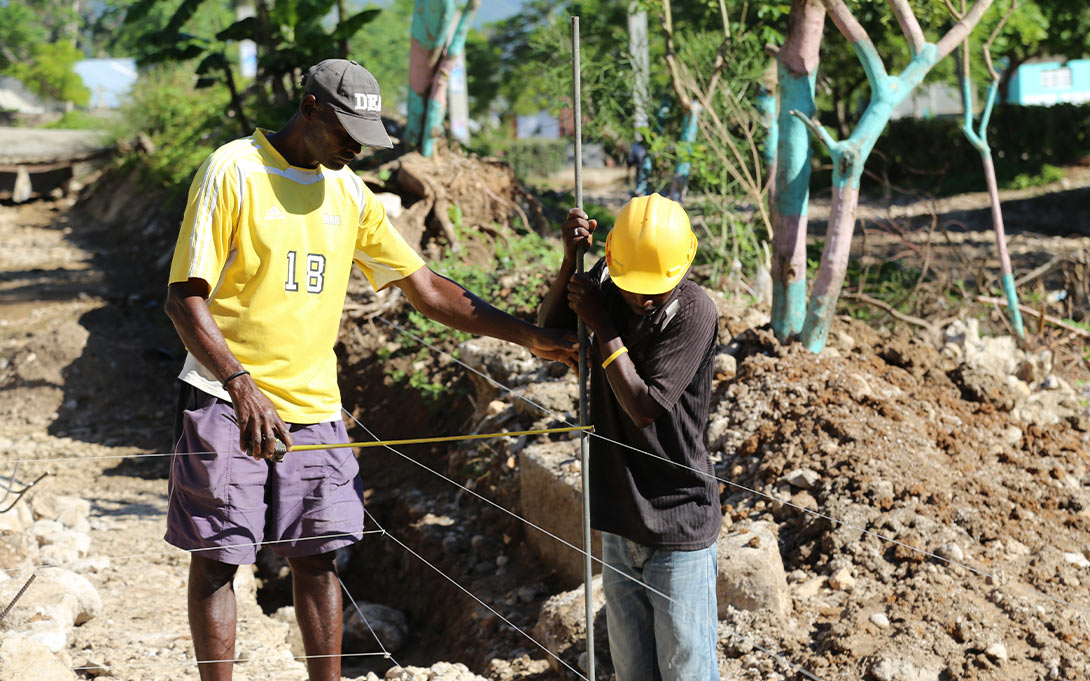
As Haiti continues to face challenges such as the effects of climate change and political turmoil, former Ambassador and Professor of Practice in International Diplomacy Susan D. Page calls for the U.S. to work alongside Haitians to create a more stable and democratic Haiti. In a new paper for the Council on Foreign Relations, “A Smarter U.S. Assistance Strategy for Haiti,” Page lays out specific recommendations for the U.S. government to achieve that goal.
“Past efforts by the U.S. government focused on a wide range of activities that individually may have been well intentioned but ultimately failed to improve the security and welfare of Haitians, let alone prove a sound investment of U.S. taxpayer resources,” Page writes. “Efforts did not sufficiently involve collaboration with the Haitian government, the population, and other actors on the prioritization of strategies to address the root causes of Haiti’s problems. Going forward, the U.S. government should be more inclusive of Haitians’ needs and aspirations and supportive of their continued demand for accountability and justice.”
Page details how recent events in Haiti, including natural disasters, a battered economy, government corruption, and chronic violence, have exacerbated already weak democratic institutions. This fragmentation has been followed by outpourings of support from other countries, including the U.S.
But the U.S. faces numerous challenges concerning foreign aid in Haiti, namely its history of assistance that left out Haitians’ input in programming, funding, and implementation.
“While the United States has not consistently promoted the growth of democratic institutions or equitable development in Haiti, it has provided vast sums of funding and support for wide-ranging governance, humanitarian, and philanthropic ‘vanity projects’ over the years,” Page says. “In turn, U.S. funding has not been predicated on a demonstrated commitment by Haitian authorities to enact substantive reforms; promote, protect, and enforce human rights and fundamental freedoms; behave democratically; or account for their actions.”
Page argues that the U.S. must turn a corner and properly support Haitians as they develop their country and institutions. Recently, a thirteen-member civil society-led commission developed the Montana Accord, “a Haitian solution to the security, economic, governance, and constitutional crises through a wide-ranging consultative process.”
The Montana Accord includes a timeline and structure to develop transparent democratic processes that will eventually lead to a democratically-elected government and a new social contract between the government and Haitians. In order to turn that corner, the U.S. must help the Haitian people follow through on this plan.
“While not necessarily agreeing with all of the terms, timeline, and approach of the Montana Accord, the United States should still help Haitians initiate its implementation,” Page argues. “The United States should view the Montana Accord as the natural starting point for its new strategic approach for Haiti precisely because it is a Haitian-formulated agreement.”
She argues that to help Haitians rebuild democratic and accountable government and economic institutions, the U.S. should prioritize four areas of assistance:
- “Reorganize and bolster support for public security, safety, and accountability.”
- “Enhance justice and human rights, including strengthening anticorruption and accountability measures.”
- “Improve citizen participation in the electoral processes and government decentralization.”
- “Revitalize the Haitian economy by prioritizing specific growth sectors.”
By helping to implement the Montana Accord and focusing on these areas of assistance, the U.S. government can turn the page on the past and begin to properly work alongside Haitians.
“Rather than merely mouthing the words that the United States is committed to ‘supporting a Haitian-led solution to the country’s challenges,’ the United States and its partners should invest in Haitian-chosen leadership and support the work of the brave Haitian civil society activists committed to achieving a rights-based democracy with accountability the United States claims it seeks at home and abroad,” Page concludes. “A more targeted form of international assistance through the GFA, with Haitians playing the principal role, should help to refocus U.S. attention on Haitian aspirations and lead to the emergence of a more stable and democratic Haiti.”
This paper was originally published by the Council on Foreign Relations. Read the entirety of “A Smarter U.S. Assistance Strategy for Haiti.”
